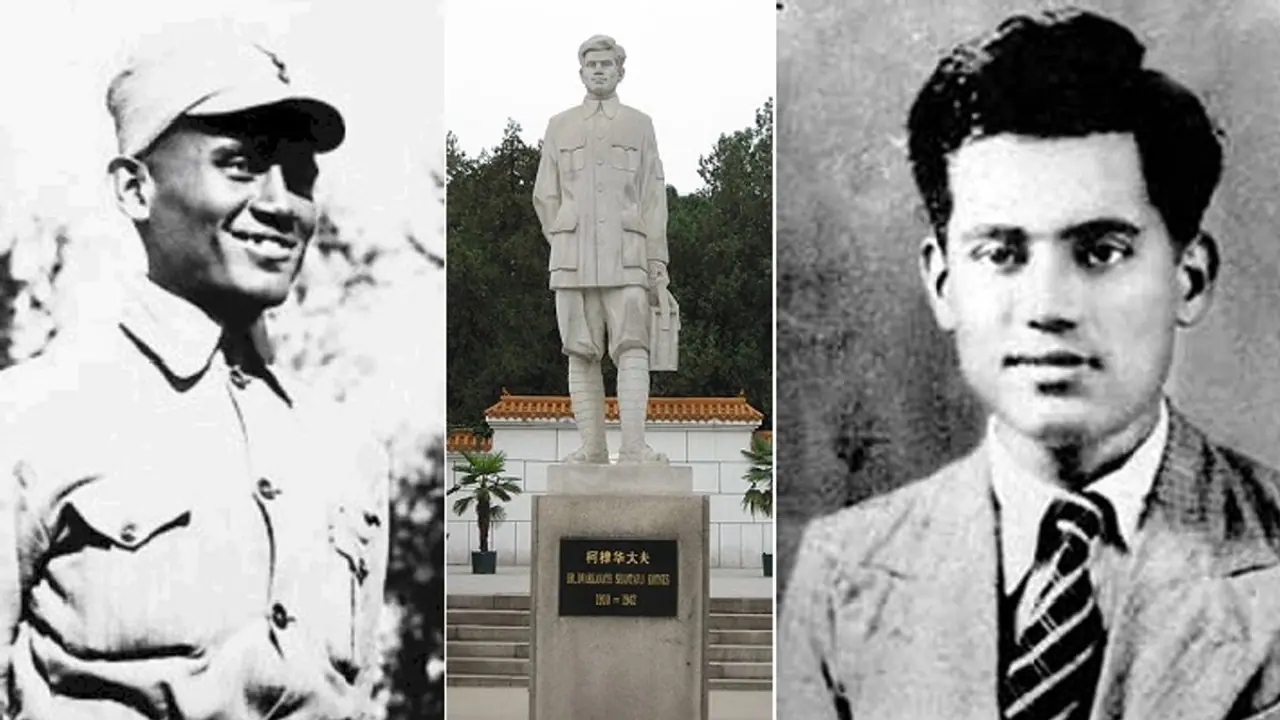Every year, the Chinese government celebrates the birth anniversary of an Indian doctor who is revered almost like a deity. In 1937, a young doctor from India, Dr Dwarkanath Kotnis travelled to China to provide medical treatment to the wounded. Let’s read more about him.
Every year, the Chinese government celebrates the birth anniversary of an Indian doctor who is revered almost like a deity. In China, many places, including hospitals and schools, are named after him, and statues have been erected in his honour. This tribute is for Dr Dwarkanath Kotnis, who saved the lives of thousands of Chinese soldiers.
Dr Dwarkanath Kotnis
Dr Dwarkanath Kotnis was born in 1910 in a middle-class family in Solapur, Maharashtra. In 1937, just before World War II began, Japan launched an attack on China. China reached out to Pandit Jawaharlal Nehru for assistance. Although India was not yet independent and unable to provide significant aid, Nehru made a public appeal for volunteers to join a team of doctors to help China. Dr Kotnis responded to this call and offered his services.
Upon learning of INC’s appeal, Dr Kotnis decided to travel to China. In 1938, after raising Rs 22,000 in donations, a team of five doctors, including Dr Kotnis, was sent to China. At that time, China was facing a severe crisis in treating injured soldiers due to the war. The Indian doctors' team dedicated themselves fully to helping the wounded.
They travelled to various provinces, with Dr Kotnis working tirelessly, often around the clock. He saved countless of Chinese soldiers' lives. While the rest of the team eventually returned to India, Dr Kotnis chose to stay in China.
Family
Dr Kotnis passed away in China at the young age of 32. According to reports, his dedication to his work was so intense that he lost track of time. The long hours of work took a toll on his health. He married Guo Qinglan, a Chinese nurse, and had a son, who unfortunately died at the age of 24. Despite his early death, Dr Kotnis became a symbol of Sino-Indian friendship. China honoured him by issuing postage stamps in his name twice. During his visit to India in 2014, Chinese President Xi Jinping met Dr Kotnis's sister and paid his respects to the family.
Honouring Dr Kotnis
Despite current tensions between China and India, Dr Kotnis is still revered in China as a figure of great respect. Films have been made about his life, and a medical school in Shijiazhuang is named in his honour. Following their graduation, students at this school take an oath of service in front of his statue, continuing this tradition to this day.
